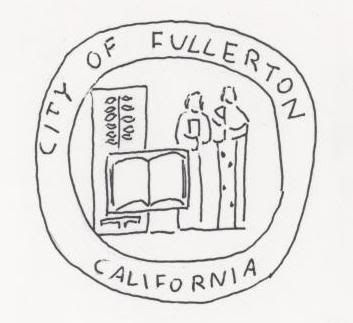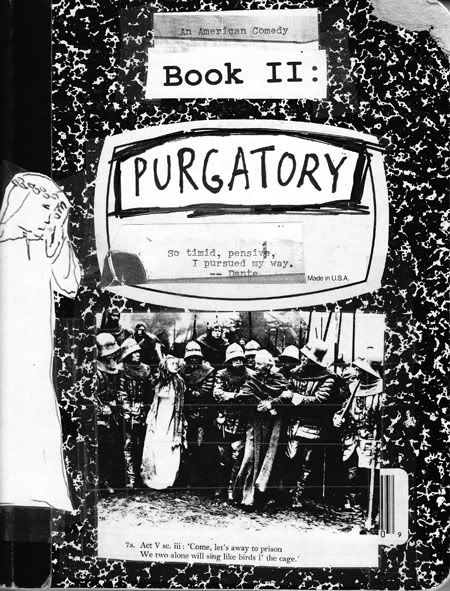
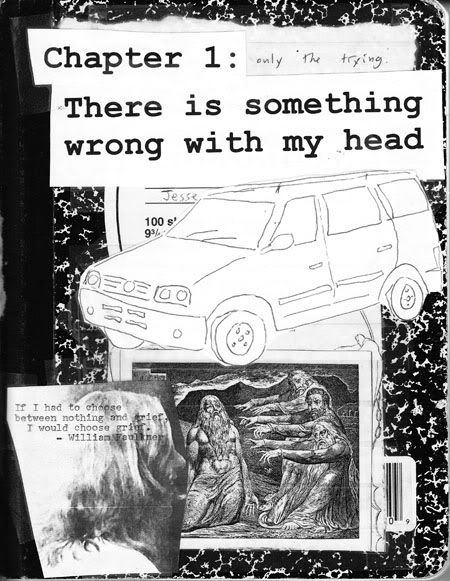
Dear Beatrice,
If I stacked these journals, notebooks, and sketches into a pile, they would form a mountain of fragmented words, ideas, images, and memories, the weight of which could make me fold my hands in despair and give up this whole fragile enterprise. But today, December 15, I sit alone in Starbucks across from a pretty girl who reminds me of you, and I begin to re-read one journal. Just one. The first of my California journals. I can handle one. And this is how I will proceed. One by one. Word by word, sentence by sentence, I will ascend the mountain that stands before me.
Sincerely,
Jesse
There’s a buzzing in my head. I can’t hear it, but it’s buzzing, like the buzzing of bad electricity. Everything is intense. I look down at my body, my torso, my moving legs, my hands and then at the sad face of my mother. Oh mother. Where is my head? What has happened to my head?
And now we are walking through the kitchen and my eyes catch the wooden knife holder. Oh God. Not that thought. But I can’t push it from my mind. It’s like a little demon voice in my head, telling me to stick that knife in my head. I could end all this pain.
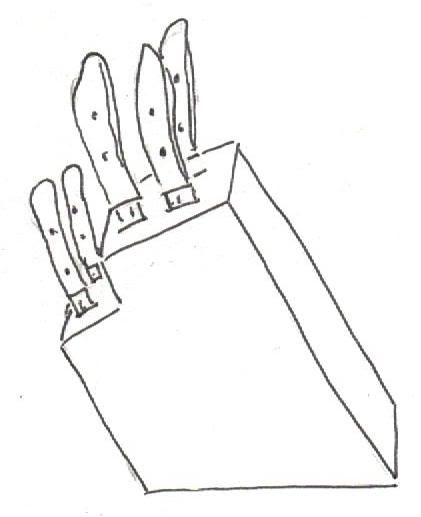
In this ordinary kitchen in suburban America, my head and my heart scream like a dying bird in a cage.
I scare myself. Because my head is so fucked up from the Demerol and I don’t trust that thing in my head that keeps me from doing bad things, from going crazy, from sticking that knife in my head. Like there is a battle between that demon voice and another voice, and for the first time in my life I honestly don’t know which voice will win.
And now I am sitting on the couch by my mom and my head is screaming with craziness and it terrifies me and I want to cry but I cannot cry.
Like a child, I lay my head on my mom’s lap and she holds it like a mother. Oh mother. Can you stop this screaming in my head? How do I tell you all these awful things I feel and think? I want to jump up and get that kitchen knife and end this. This life. What keeps me from jumping up and getting that knife? The hands of my mother.
And something else. When the pain subsides a little, I go into my room and write a poem. It’s just a list of reasons not to die. A list of beautiful things. And it saves my life.

I’m in the backseat of my mom’s Dodge Stratus. We are driving down Brea Boulevard. We pass a succession of corporate retail stores: KFC, Starbucks, Burger King, Old Navy, Tower Records, Wal-Mart, McDonalds. And then the mall, with the big department stores signs: Macy’s, Robinson’s-May, Sears. And then Brea Boulevard turns into Brea Canyon Road, and it is only dry foothills and a two-lane road. Oil wells dot the landscape. Out the window, I notice three cows, grazing in sparse pastures beside the road. The cows are lean.
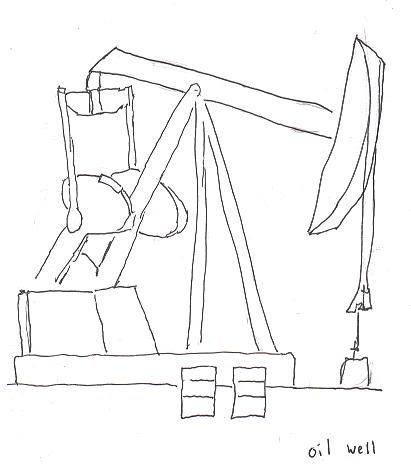
Suddenly we are in another town. The dry shrubs become palm trees and the sparse hills blossom into rows of tract housing and square office buildings. We are in Diamond Bar.
My mom pulls into the parking lot of one of these office buildings. The sides of the building are made of made of dark, reflective glass, and I can see my dark reflection approaching. It looks like another person.
Inside the building the fluorescent lights bother my eyes. We stop in front of a door which reads:
Leslie Carter, MFCC
Adult and Child Psychotherapy
I hate waiting rooms. This purgatory place filled with magazines, plastic plants, and framed prints.
We shake hands and follow her into her into a dimly lit office.
After all the getting to know you bullshit, Leslie asks my parents to describe what they have “observed” about my behavior and moods of late. My mom begins to speak and then starts crying.
“What kinds of emotions are you feeling lately?”
“I feel nothing. I’m totally numb, like emotionally. All I feel is this detachment.”
“Do you have this detached feeling now, at this moment?” Leslie asks.
“Yes.”
“And how intense would you say that it is?”
“It is very intense.”
Leslie writes something on a yellow legal pad.
I had a dream last night that was so vivid and real and emotional that I almost cried. But the more I struggle to remember it, the more it slips from my mind.
“How is your head feeling today?” Leslie asks.
“The same.”
“Why don’t you tell me how this feeling makes you feel. Try to say it with emotion.”
“I don’t feel any emotion.”
“I know, but try to say it as if you did.”
“I don’t like this feeling.”
“I think you can do better.”
“This feeling fucking sucks.”
“Good. How about a little stronger.”
“Fuck this fucking feeling! It fucking sucks shit! Goddamn this feeling in my head! Why can’t I feel normal?! When will feel like a normal fucking human being again?!”
“That was very good.”
I’ve been watching a nest of robin eggs in the maple tree in our backyard for some time. They are small and blue and speckled. I wonder about birds and other animals born in eggs. They are isolated in those shells for a long time without food or water. How do they survive? I suppose they’ve got everything they need right inside the egg.
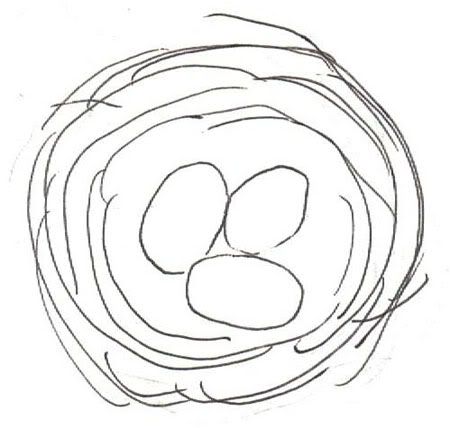
“Leslie, do I hate my father?” I ask, laying on the couch in her office.
“What do you think?”
“I don’t know. How can I hate someone if I don’t feel anything?”
Lately, I find that I feel more comfortable wearing sunglasses. It has to do with my eyes. The glasses provide a framework for the world—two little frames enclosing everything, giving structure to the fragmented chaos that drifts past my eyes endlessly, like television, or a foreign film with no plot, just disconnected streams of images. Like two paintings enclosed by frames. The whole world with its infinite variety and color surrounded by something unchanging, unmoving. These little frames remind me that I am here, that it is me looking through them. That these are my eyes looking at this world. That I am not a headless ghost. That I exist.
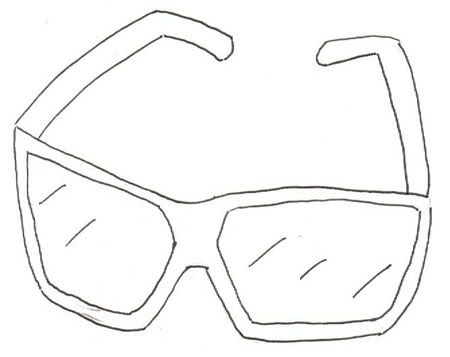
“Leslie, I think I’ve figured out what I’m angry at,” I say, matter-of-factly.
Her eyes light up a little.
“Really? What’s that?”
“I am angry at my own pain.”
“Than’s interesting.”
“ I had this idea for like a business--an anger release club, where people can come and release their anger in various, healthy ways. For example, they could smash things. They could buy a dozen eggs and throw them against a wall. There would be mannequins they could punch. They could smash watermelons and pumpkins and other things. There would be sound-proof rooms where they could yell as loud as they wanted.”
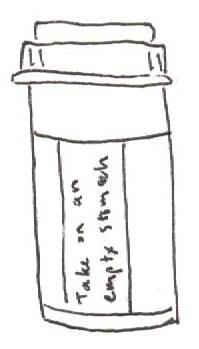
I’m in Longs Drugs, picking up my prescriptions for Asacol, Wellbutrin, Effexor, Buspar, and some toilet paper and tomato sauce for my mom. When I walk outside, a homeless man is walking toward me, mumbling something crazily. His jeans are dirty and he’s wearing several shirts of different colors and a dirty denim jacket. His eyes are deep set and dark around the edges and creased with lines. As he approaches, I move aside to give him more room, but he just stops right in front of me and looks at me and I look at him. His eyes are dark and bewildered, holding the expression of a man who is in a dream from which he cannot awake. We stare at one another for a moment, but I soon look down at the sidewalk. When I look up, the man looks deeply into my eyes and points at me and says, “Thank you very much.”
“I believe that these feelings in your head will diminish in time.”
“But it’s been so long.”
“I believe that as you connect with people, the detachment will decrease.”
“But the detachment hinders my connecting with people. It’s a catch-22.”
“Just keep trying.”
“I am trying. But it’s so hard.”
“I know it is.”
“Isn’t there a drug I can take that will just make it go away?”
“There are certain types of drugs, but they are highly addictive and dangerous.”
“I’m almost at a place where I’m willing to risk that. I just need to remember how it feels. Just a glimpse of normal. If I can remember, I can find my way back.”
“Some things are worth struggling for. Just be patient.”
There was a strong wind storm last night and some of the trees on my street, those with shallow roots, were uprooted and blown over, and lay across the street this morning. There were men in orange vests cutting up the trees this afternoon. It’s not the age or the size of the tree that matters in a windstorm, but the strength and depth of its roots that allows it to stand. I once heard that roots grow deep in places of dryness, like this Southern California desert, as they plunge deeper in search of water.
“The cure for loneliness is relationships,” Leslie says, “It’s simple.”
“Yeah, but it’s not that simple.”
It's in my way when I get into the shower. Some daddy longlegs is crawling across the tile. I'm disgusted by it, even though I know it's harmless. So I turn on the water and drown it. I watch it struggle in futility against the water. Some instinct, some nerve tells it to flee with all its strength. But it is not enough. The water engulfs it and it is drowned. As the water recedes, I look at its lifeless body on the tile, its curled legs flattened by the water. And I wonder, What is it that separates a living spider from a drowned one? For a moment, this thin line astonishes me.
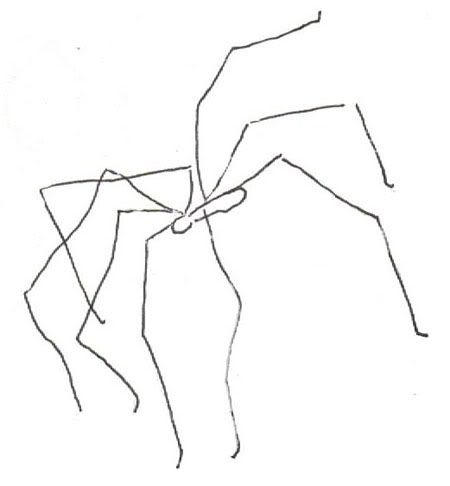
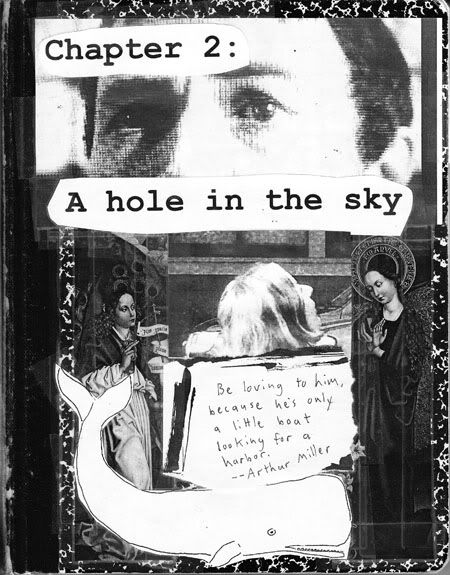
Dear Beatrice,
I like to bring my notebook to church, because for some reason, I tend to get inspired with ideas at church, and not just “religious” ideas. Sometimes I feel bad when I’m writing in church, like I should be singing and praying and listening, like everyone else. But, for me, writing has always been like singing and praying and listening.
Sincerely,
Jesse
My dad thought me and Josh, the new worship pastor at our church, would have a lot incommon. We are eating burritos at Baja Fresh Mexican Grill in Brea.
“What are you reading right now?” Josh asks.
“Moby Dick.”
“Oh…Have you ever read Experiencing God?” he asks.
“I think they tried to make us read that in junior high youth group. It’s like a devotional workbook, right?”
“Yeah. It really changed my life.”
My dad was wrong. Me and Josh have nothing in common.
And then I sort of tune Josh out as I eat my Burrito Ultimo, and I get thinking about Moby Dick. Is the whale God? Is the ocean God? What is the whale? Knowledge?
This guy I went to high school with, Dylan Brinker, just died in a boating accident. I played National Junior Basketball with Dylan. We were on the Suns. I’m at the funeral and it’s like a premature high school reunion. In the sanctuary, I run into my friends Ernie and Chuck.
“What’s up?”
“Nothin.” They look about the same. Maybe a little older.
I sit next to my friend Peter Fellauer during the service, and I remember how we used to draw funny/perverted/violent cartoons on the welcome cards during church, and then try unsuccessfully to stifle our laughter, while the old men in suits would glare back at us. I think of drawing something on the welcome card, but instead I just stare at the back of this old man’s neck, which is pretty wrinkly.
On my way to the graveside service, I stop at home to use the bathroom. After peeing, as I’m walking back down the long hallway that leads to the front door, I stop. On the wall, there are all these family portraits. Some of them are pretty old. I look at all the old men who were my ancestors: Clifford La Tour with a camera around his neck, Ted Morey as a little boy in the 1800s with his hand tucked into his coat like Napoleon, Glenn Steffen in a Navy uniform. A portrait of my family circa 1990. I’m about 13. My brother with his high school basketball team, The Indians. Seth’s basketball coach, coach Reeve, is now dead. I can see my face in the reflection of the glass of these photographs.
And then, for some reason, I sit down in hallway beneath all these photographs and cry.
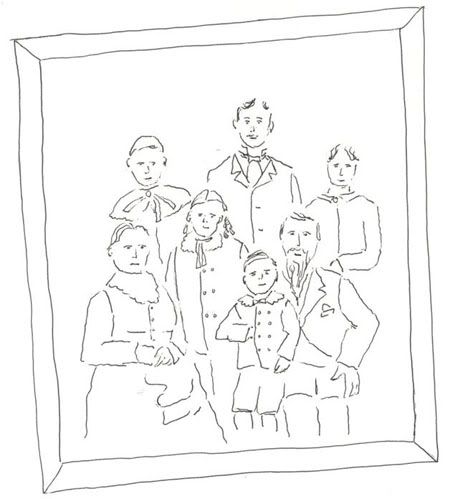
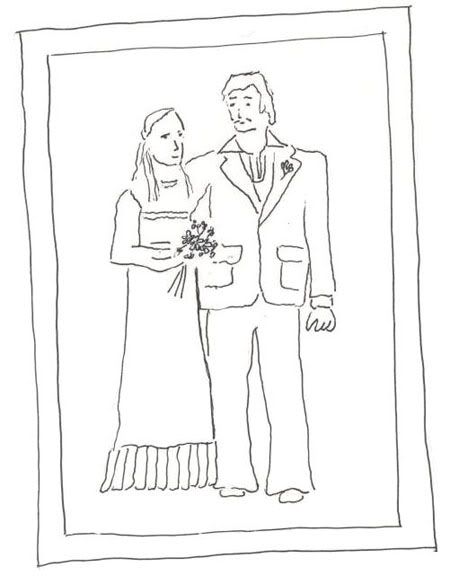
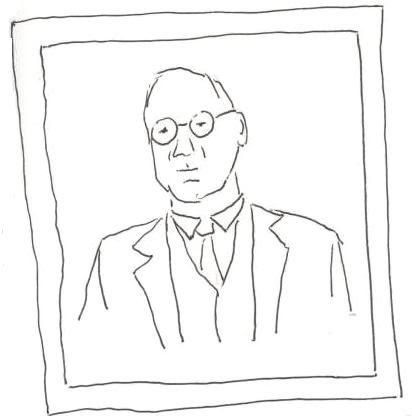
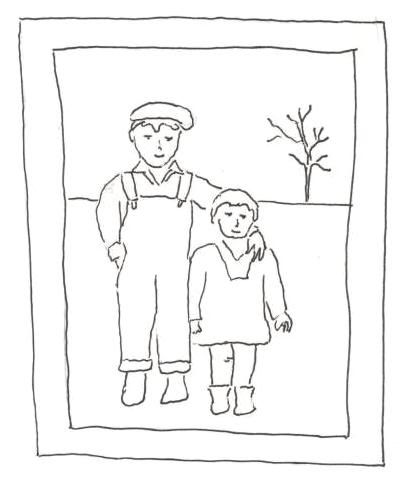
Sometimes I take walks. Through these suburban neighborhoods, past the well-groomed lawns and neatly-spaced houses. Past the driveways with two or three new cars, maybe a Lexus or an SUV.
I trespass into gated communities, where every other house is literally identical, and I imagine starting fires. Mom used to say that gated communities were unsafe because fire trucks could not get into them fast enough.
Today I am walking to a park. A little bit of artificially constructed “nature” in the midst of this suburban sprawl.
I walk past a house where there’s a middle-aged woman sitting by the window with a pug on her lap. She’s talking in his ear and rubbing his legs. Then she notices me and looks embarrassed. And that makes me embarrassed.
A man is shoveling an enormous pile of dirt, bit by bit, into a dump truck. It seems an everlasting task, like the myth of Sisyphus.
I walk past a man who always seems to be outside doing something to his lawn. It’s like his lawn is his life’s work. Eight times out of ten, when I’m passing this house, that old guy is outside like pruning his bushes or hand-pulling weeds, or trimming hedges. Today he’s sprinkling some kind of fertilizer on his grass.
There is a middle-aged man riding a little girl’s pink bicycle along Brea Boulevard.
And now I’m walking through the park, past racquetball courts and basketball courts and volleyball courts that mom never let us play in because she said there was broken glass in the sand. I follow a cement path, a walking trail that circumnavigates the park. I’m looking for a nice spot to sit. I wander.
And then I find my spot--a bit of grass beneath a transplanted weeping willow tree beside an artificially constructed stream. I sit and pull out the little blue pocket Bible I always carry with me now and begin to read the book of Lamentations. I fall asleep under that tree and dream that everything in the world is synthetic, even the trees.
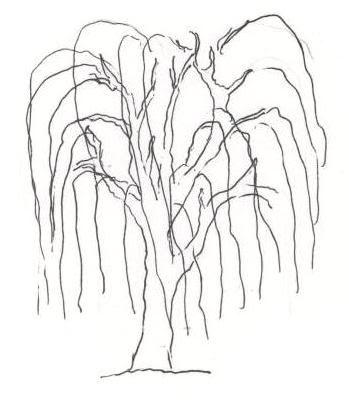
I feel an intense heaviness in my chest and my abdomen gurgles and my head starts detaching from my body.
“So what’s going to happen?”
“Well, they caught it early, so the prognosis is very good.”
“Do you have to get radiation, chemotherapy, surgery, what?”
I can’t believe I’m asking my mom these questions.
“I have options. I can get radiation, or chemo. But the only fool-proof way to get rid of it is surgery, what they call a mastectomy.”
“That’s where they cut your boob off, right?”
“Yeah, actually both boobs. I’m getting a double mastectomy.”
I look down at my peanut butter toast. I’m not hungry.
I watch the doctors roll my mom into the operating room, and she looks at me and smiles and anesthetically-induced smile.
I sit in the waiting room, sketching the other people who are waiting: my father, my aunt Mary, mom’s friend Rhonda, my grandma Sally, and various strangers: an old man in a green baseball cap, a Mexican man wearing white jeans, an Asian woman who looks nervous, and the little boy with her who will not sit still. I can’t draw that little boy because he keeps moving. All I get are rough, somewhat indistinct lines that kind of look like a person.
Four hours later, I walk into my mom’s hospital room and she looks like hell. Apparently they are having a problem with the pain medication. She says it feels like a semi ran over her chest. I don’t stay long because the nurses say she needs rest. My grandma stays the night with her.
The next morning, my mom looks weary and in pain. Apparently, the pain medication kept making her vomit, and so she just stopped taking it in the middle of the night and so she was in severe pain most of the night. I get angry at the nurses for letting this happen to my mom. I take out my drawing pad and begin to sketch my mom, but I cannot. Not like this.
I sit for a long time beside my mom’s bed, holding her hand as she drifts in and out of consciousness. She’s pretty out of it now from the medicine and lack of food and sleep. As I look at her, I start wondering how God can allow all the suffering in the world: my pain, my mother’s pain, and all the people in this hospital and all the hospitals of the world who send up every day a cry of pain fierce enough to rip a hole in the sky.
We are on an airplane, taking off from John Wayne airport and I am sitting next to my dad. I start thinking about going backwards in time, back up to Seattle, and I’m getting younger instead of older and I’m getting healthier instead of sicker, and by going back I am able to slow things down and notice things I didn’t notice the first time around, and, by carefully piecing things together, clues, conversations, symptoms, signs, I am able to pinpoint exactly the moment I got sick, and I am able to stop it.
I stare out the window at the Orange County landscape, at the rows and rows of perfectly planned tract housing and shopping centers. I am surprised by all the green—the trees that seem to grow out of the gray and beige concrete—the transplanted trees from all over the world that people plant in their yards and shopping centers. But it feels unnatural. I imagine going backward further and further in time, to see what the landscape looked like when the first white settlers peeked over the Rocky mountains, when it was just shrubs and hills and Native Americans and some animals, and before then when there were saber-toothed tigers and prehistoric creatures, and then dinosaurs, and then everything was ice, and then everything was formless and void.
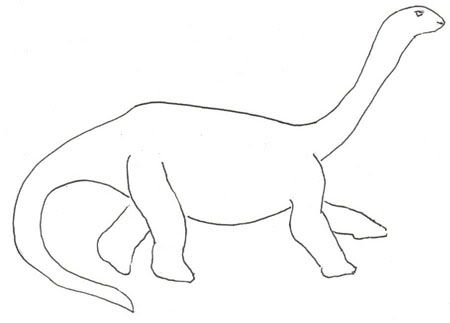
We are descending into the grayish white cloud canopy that covers Seattle like a shroud. We are in the midst of it, and then we are beneath it, and I notice things I’ve never noticed before. Like how, as you approach Seattle, there are all these little green islands, separated by these waterways. Some of the islands have only one or two structures on them. I imagine living alone on one of those islands and, sometimes taking my boat along the waterways, just to explore.
And then we are in SeaTac airport, and Seth is hugging me.
“Hey bro.”
“Hey.”
“You have a nice flight?”
“It was okay. My ears are plugged.” He sounds like he is far away, or I am far away. I follow my family outside onto the rain-soaked street.
And now we are walking together in downtown Seattle. My brother is leading the way. My mom is still recovering from her surgery. My dad, thin and strong and slightly balding, takes photographs. Christine is glowing with expectation. Grandmere is holding my arm with her thin, wrinkly, fragile arm.
Today, the day of the wedding, it is not raining. The leaves of the trees outside Bethany Presbyterian Church are bright shades of orange and yellow and red—almost like someone painted them.
I am standing amidst various tuxedoed men—the friends of my brother: James, Jon, Tom, and Christine’s brother Matt. A young woman is taking photographs. I struggle to hold a smile for such long periods of time. Grandmere’s dress is almost see-through. That’s gross. Grandpa his laughing his full-bellied laugh. He seems a bit underdressed, but I don’t think he owns a suit.
And now I am standing very close to my brother inside the church, and he is facing Christine, who looks beautiful. And the pastor is saying the usual wedding stuff and I am nervous. My legs shake and my abdomen gurgles and my head detaches from my body, but I’m used to it. They say, “I do.” And then they kiss. And then the organ music. And my brother is married.
Orange County is overrrun with bad architecture. Especially Irvine, Placentia, Yorba Linda, and Brea. There are a few places in Fullerton, Orange, and Santa Ana that have some sense of history, but not many. I’m walking in Old Town Orange, past an old movie theater that has been converted into a church called “Son Light Fellowship.” I wish it was still a theater, showing old movies. I think that an old movie house could be as important to a community as a church..
I signed up for the handbell choir at church last week, because I felt I needed to get involved in something, and our first practice is today. I stand awhile in the room, watching two women carefully setting shiny brass bells of various sizes on two long tables. I eat my fries and sip my Coke.
I am assigned the E and F# bells in the bass cleft. This first practice consists mostly of learning how to properly ring the bells. We are given the music for the first piece we are to play-- “O Come, O Come, Emmanuel.” We play the first few lines of it, somewhat off, but I can tell that it will sound pretty after some practice. The main thing with handbells is timing. You have to ring your bells at exactly the right time, or it sounds like shit.
We are walking together on the Santa Monica pier. It is nighttime and it is cold.
She brushes her hair from her eyes. Her hair is now a natural color, a brownish blonde, like mine. It is no longer dyed red, and her face seems less pale. She looks more natural, but no less beautiful. We are different people now, I guess.
She tells me she’s seeing a guy named Dave. The lights from boats shine on the surface of the water, and I steal glances at her face.
Where do I begin, and where do I begin?
We walk past a homeless man and she hands him a dollar.
And now we are saying goodbye, and I hug her and I want this moment of contact to be electrical, but my head is detaching from my body and my gut is gurgling, and I look out through my dead eyes into her alive eyes and say goodbye.
I drive home alone along the 405 freeway, watching the taillights of cars, listening to this new band called The Shins, and singing along: And if you took to me like a gull takes to the wind, then I would jump from my trees, and I would dance like the king of the eyesores and the rest of our lives would’ve fared well.
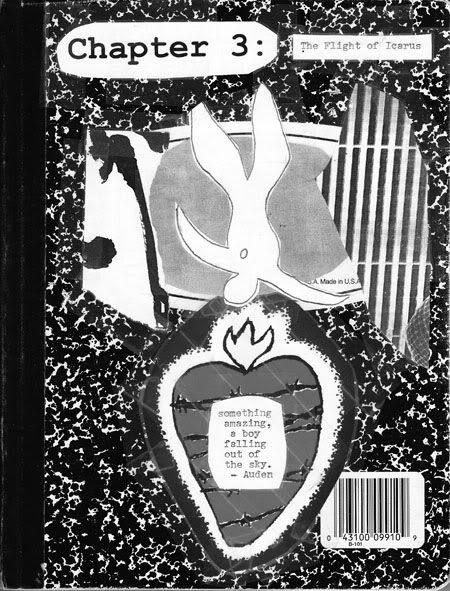
Dear Beatrice,
Because I can think of nothing else to do, I write. I can try to express things as they are, as I feel and see them. I can try to tell the truth of my life. And even if the truth does not make me happy, it might mean something. And that is something. That is a reason not to die. I think of my ancestors. I try to imagine the sorrow of their lives, and what made them go on living. I see a pattern. When Glenn Steffen thought he would lose everything, when his wife was dying from polio, he built a house. He made something with his hands. When Cliff La Tour was aching with loneliness and depression and a job that was killing him, he invented the buoy, and later took photographs of horses. When Jac La Tour, my father, was a sick young man and a college dropout, and didn’t know what to do with his life, he wrote poetry and took photographs with his father. In the midst of the Great Depression, Ted Morey built a neighborhood that still stands today. My ancestor’s hands, compelled by sorrow and pain, have made wonderful things. Things that have lasted. And so my hands will write.
Sincerely,
Jesse
I’m sitting alone in Starbucks, as usual. I’m trying to draw this old couple sitting a few tables away from me. I’m fascinated by their postures, they way their clothing falls and folds against their bodies, the complex wrinkles in their faces and hands, the depth of their eyes, the way they look at one another. I trace the outlines of their figures, trying to capture all the lines and folds. I can’t. It’s been so long since I’ve tried to draw something, Probably grade school.
When I finish, I look at my drawing for a long time. It’s rough and there are all these stray lines, and the proportions are off, but it brings me a kind of relief.
On a wall in my room, I have a framed print of “The Flight of Icarus” by Henri Matisse. It’s covered by reflective glass, which is the closest thing to a mirror in my room. I’m standing in front of it and looking at my reflection behind the cut-out of Icarus among the yellow stars, with the red hole where his heart is, my body reflected in the blackness of his body. I can also see the reflection of the wall behind me, on which hangs an engraving by William Blake of Christian from The Pilgrim’s Progress.
I pick up a large mirror and lean it against my bookshelf. I take off my shirt and sit cross-legged in front of the mirror. My torso is pale and skinny. I lay my large drawing pad on the floor in front of me, and flip it open to a clean page. Then I take a piece of black charcoal from my green tackle box and stare at my reflection in the mirror, and begin to draw.
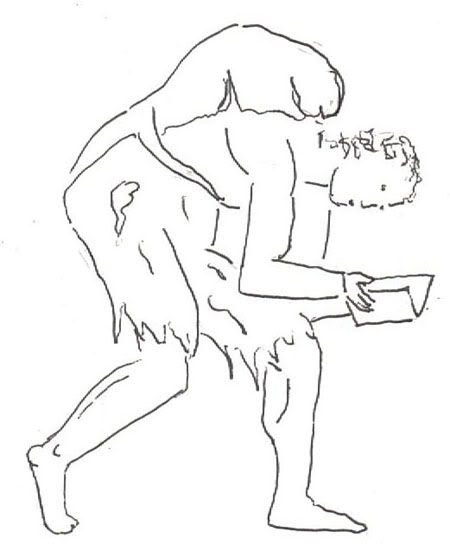
When I walk into their room with my drawing, my parents are laying side by side in bed, watching KCAL 9 news on television. There was a fire in Riverside. No one died.
“Hey bud,” my mom says.
“Hey. I want to show you a drawing I made.”
I hold up the paper for them to see. They react with sort of awkward, blankish stares.
“Is that how you feel?” my mom asks.
“I guess so.”
My dad and I are heading down the 405 freeway toward Los Angeles. I’m driving and we are listening to a Simon and Garfunkel album, “Bookends.” It’s one of those rare albums that we both like. We exit at Getty Center Drive. I ask my dad who J. Paul Getty was.
“At one time he was the richest man in America.”
“How’d he make his money?”
“Oil, I think. He was like one of those guys kids wanted to be when they grew up. They’d either say, I want to be as rich as J. Paul Getty or as smart as Einstein, or maybe as good a ball player as Mickey Mantle.”
“Which did you want to be?”
“I wanted to be an oceanographer.”
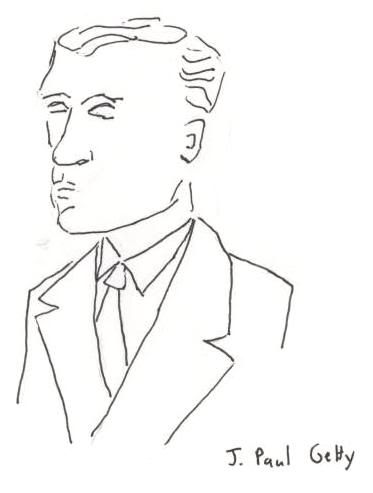
My father and I are in a room, looking at paintings by Rembrandt.
I’m in my garage, working on my triptych painting. It has three large wooden panels, and the borders are made of gold leaf, in Byzantine style. The paintings are various scenes from the life of Christ, interspersed and echoed in scenes from my own life. For example, the picture that is supposed to be Mary and baby Jesus is actually from a photograph of my mom and me. And the Last Supper scene in the middle panel is actually my family at the dinner table, my father at the center, and my brother and I to his right and left. I’m unsure about what to paint for the crucifixion scene. I’ve thought of doing a painting of me with my wrists slashed, arms spread out on a bathroom floor. But I think my mom would probably have a mental breakdown if she saw that, so I might just paint Jesus on the cross. Something more traditional, less offensive.
I’m working on painting my mom’s face. I always have trouble with faces. I can make them look like human faces, but not like the people they are supposed to be. I tell myself that this is Byzantine style, so realism isn’t really the point, but the perfectionist in me endures. I’m working on her eyes, when I turn around and see my neighbor behind me, watching me. My neighbor, Tim Fosmark, is an accountant.
“Wow,” he says, “I could never do anything like that.”
This is a common response to anyone who sees someone painting.
“You might be surprised,” I say, “I didn’t think I could, but I took at couple of classes at the junior college. It’s really just a matter of learning the principles and applying them.”
“Well, I can’t even draw a stick figure.”
He laughs awkwardly, and I laugh courteously. Then there is silence. I watch him walk back to his driveway , where his three year-old son is standing, holding a basketball, and saying something I cannot understand.
I’m sitting at the computer, writing like a madman. And then there is a knock at the door.
My mom pokes her head in.
“Could you mow the lawn before dad gets home?”
I continue typing and nod my head.
When my mom and dad and aunt Susie (who is visiting from Wisconsin) talk about money and finances mortgages and mutual funds, there is something inside me that compels me to leave and do something else, something creative, like writing or painting.
I have recently been making a film that is comprised of mostly still images of “ordinary” things—buildings, stop lights, cars, etc. And I get this feeling like everything around me is worthy of filming—all the complex minutia. But I can’t film everything. It’s impossible. This causes a lot of tension in me. I sometimes just want to keep on filming. Even in my school cafeteria, I’m looking around, seeing what things would be good to film—that Coke machine, that man, that hamburger, that worker, etc.
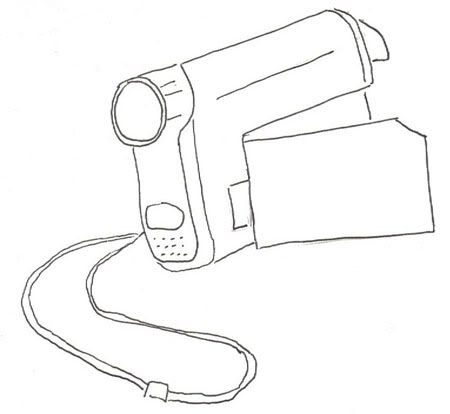
I’m working on the largest painting I have ever done. It’s eight feet by eight feet, a mural practically. I’m nailing sheets of plywood onto a wooden frame that I made. It takes up almost a whole wall of my parent’s garage.
“How are you going to move that thing?” my father asks.
“I don’t know,” I say, and continue nailing.
I’m working on a self-portrait today, and I’m frustrated because I can’t get the face right. It looks like someone’s face, but not mine. Just then, a blaring sound in my ear causes me to jump out of me seat, and I involuntarily crush the photograph in my hand, and cry out, “Aaahhhhh!”
Donovan is being me rolling on the ground, laughing hysterically, holding an air horn in one hand.
“You almost gave me a fucking heart attack!”
“That was the funniest shit I’ve ever seen,” he says.
Then he says, “Let’s get drunk.”
“Okay.”
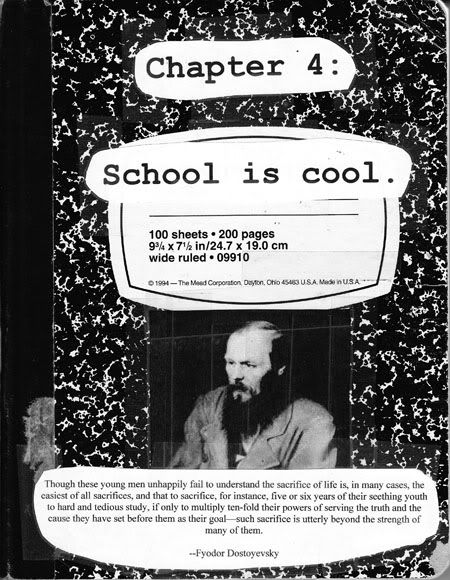
Dear Beatrice,
The journals themselves become works of art—a sprawling mass of quotes from books I’m reading or films I’ve seen, stories, drawings, pictures taped here and there, daily activities, lists, thoughts and ideas for the novel and other creative endeavors. I wish I could just reproduce the journals as they are, because they are something. But who would want to read something like that? The task of the artist is to distill beauty from the chaos. That is what I’m trying to do.
Sincerely,
Jesse
The first day of a new semester. In my world music class, I listen to a conversation between two young women.
“I’m taking physics, calculus, chemistry, and statstics.” I think, what a fucking nightmare.
The professor plays “Blowin in the Wind,” to introduce American folk music. I get goose bumps. I look at the girl next to me to see if she has goose bumps. She does not.
In my Milton class, there is an adult learner who sits in the front row and loves to hear himself talk. He is a fountain of useless and irrelevant information. I fucking hate adult learners. Just because you missed out on college as a young person doesn’t give you the right to torture us with your boring stories and half-baked ideas.
I’m sitting in my Structure of Modern English class, pretending to take notes. But I am actually compiling a list of schools I want to apply to:
Schools to apply to:
Cambridge
Oxford
UCLA
Berkeley
Duke
Harvard
Stanford
Univ of Iowa?
Other schools in England/Europe?
I am one of two males in my women’s studies class.
In my English 301: Advanced College Writing class, we do a “free write,” and I start working on my novel. My teacher tells us to stop writing and she says, “We’re not writing novels here.”
In my Shakespeare class, during a conversation about Henry IV, part I, Dr. Scott asks the class, “What is redemption?”
The class is silent.
One student says, “It’s like revenge.”
She says, “No, it’s not like revenge.” And repeats the question, more earnestly, “What is redemption?”
Finally, though I am afraid to speak in class, I raise my hand and say, “It’s a religious term. It means renewal or salvation.”
I am amazed that most students don’t know what “redemption” means. I guess most students don’t read the Bible every day, like me.
I’m filling out applications for graduate schools, and it asks for my permanent address. I leave it blank.
I finally graduated from college last weekend. My culture has no real rites of passage, and so I wonder if I am yet a man.
I’m watching Mr. Rogers’ Neighborhood. It begins, as all episodes do, with Mr. Rogers walking in the door and singing “It’s a Beautiful Day in the Neighborhood” and removing his blazer and loafers and putting on a cardigan sweater and tennis shoes. He then begins to build a fort out of large wooden blocks. It looks somehow strange to me. He’s like 60 years old and he’s building a fort out of blocks. As he builds it, he sings a song that goes something like, “You can imagine all you want, but until you do it, it won’t get done. You’ve got to do it, do it, do it, and when you’re done, you’ll know who did it…it was you.” After building his fort, Mr. Rogers sits cross-legged inside it and smiles with genuine pride in his work.
I’m re-shelving self-help books with Jennifer.
“I love Disney,” she says, pretty much out of the blue, as she re-shelves My Feelings Are Like Wild Animals: How do I Tame Them?
“Okay,” I say, re-shelving How Parents Can Help Their Children Get Organized and Learn to be Productive.
“My dream is to be a Disney artist,” she says, and then asks, “What’s your dream?”
I don’t really feel like talking about dreams. But finally, I say,
“I want to be a writer,” as I re-shelve Seven Habits of Highly Effective People.
“Ooh...Do you have like an author who inspires you? My boyfriend wants to be a horror writer like Stephen King or Dean Koontz.”
I think for another moment.
“Dostoyevsky.”
“I’ve never heard of him,” Jennifer says, re-shelving Cutting: Understanding and Overcoming Self-Mutilation.
“He was a Russian novelist.”
“Oh,” Jennifer says, “I don’t have one person who inspires me. For me, it’s just...Disney.”
I nod, and re-shelve How to Win Friends and Influence People.
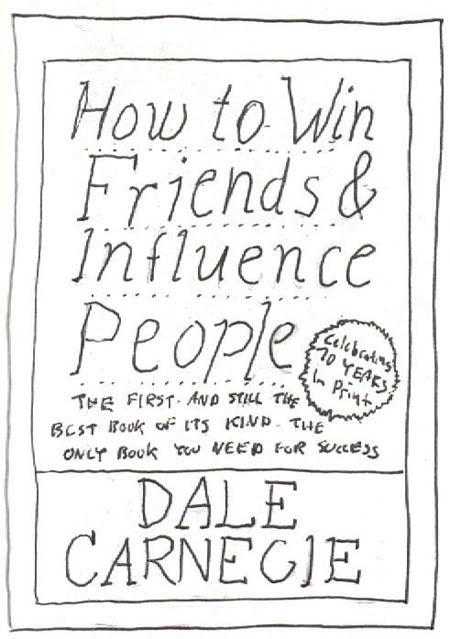
“So, do you write things now?” Jennifer asks.
“Yeah, I write stories and stuff.”
“Do you write mysteries, adventure stories, horror, or science fiction?” she asks, as if these are the four categories of literature.
“Um, I mostly just write about my life.”
“Tell me about one of your stories; give me an example,” Jennifer says, as she re-shelves Choose to be Happy.
“I wrote this one about two brothers who go fishing.”
“That’s it? Just two guys going fishing?”
“Yeah. That’s it,” I say, re-shelving Your Power Within! Self-Help Through Hypnosis.
I am glad and a little relieved when a customer walks up and asks Jennifer to help her find a book about jellyfish.
“I know the perfect book,” Jennifer says.
As I sit at Starbucks reading, in my peripheral view, I can see the world all around me, and it frustrates me, casting the novel I’m reading (The English Patient) into artificial relief. I want to cup my hands around my eyes, like horse blinders, because all I want to see are the words on the page. But I can’t deceive myself. I can’t escape the reality of my life. I cannot enter, fully, into a narrative other than my own.
Sitting in my Modern Drama class, during a discussion of Brecht, I begin making a lost of abbreviations:
-sum—some
-ppl.—people
-b/c—because
-for ex.—for example
-w/--with
-9/11—September 11, 2001
Two professors sit across from me in the alumni lounge. I record fragments of their conversation:
“Anthropological/climatological implications.”
“It’s a good idea to start out with ethnography, and then we move into some Taureg.”
“I’m going to a conference in Florida on text analysis.”
“So now they have a standardized coding system.”
“So this is trying to regain territory that we lost to cultural studies, by scientizing it.”
“In the British academic tradition…”
Walking across campus, I can hear an Army recruitment guy say to a freshman-looking girl, “We have the best language school in the world.”
In my French class, I make a list of possible titles of the French release of the movie “Batman Forever”:
-Batman Toujours (Batman Always)
-Batman Tous Les Jours (Batman Every Day)
-Batman Souvent (Batman Often)
-Beaucoup de Batman (A Lot of Batman)
Sitting in French class, tired, anxious, my head bothering me, low on medication. Heaviness, anger, creative stress. I will carry this. I will bear it.
In my parents’ garage are boxes and boxes of used books I have picked up at garage sales and library sales and estate sales. Mainly classic literarture. I want to read everything. I want to understand. I imagine, one day, I will have quite the library. For now, I have a garage full of books and slightly confused parents.
Because the thought of working a normal, corporate job is profoundly repellent to me, I will stay in school. I will get my master’s degree in literature. I will be poor for three more years. I’ve been in college six years so far, what’s another three more? Most days, reading and writing are the only things that make any sense to me. So that is what I will do.
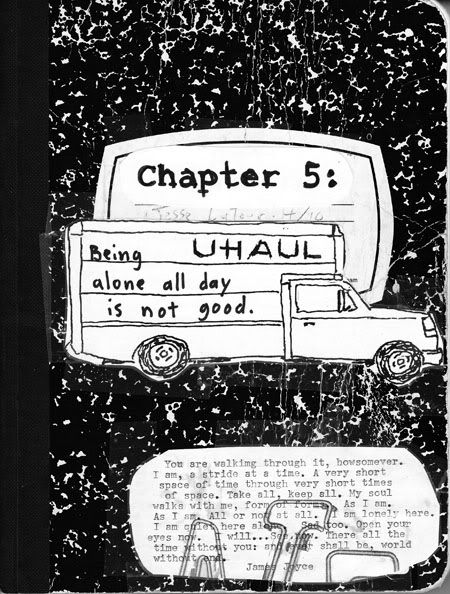
Dear Beatrice,
Will writing this make me feel better? Will it make me feel something? I don’t know. It’s funny how I do things to make myself feel good, and end up feeling bad. Or worse, I end up feeling nothing. Sometimes I think I do things to stop myself from feeling. Why? I hope, if you ever read this, that you will pray for me. It’s hard for me to pray anymore.
Sincerely,
Jesse
Our house is completely empty. Yesterday I helped my parents pack everything they own (and several boxes of my books) into a U-Haul moving truck. It felt weird to watch the rooms empty out. I don’t particularly like moving.
The first night in my new room at the Lacounte’s house. I’m laying alone in an unfamiliar bed in an unfamiliar room, surrounded by boxes. Penny stands on my stomach, trying to pick at the pages of my journal. I lay for a long time, thinking but not writing. I feel emotions. I want to write only I do not know what. My parents are 3000 miles away in Stoughton, Wisconsin. I have fears. I fear that, without the support of my parents, my colitis will flare up, my depression will return and I will not be able to bear it. I must reach out. I am not emotionally self-sufficient, even though I would like to be.
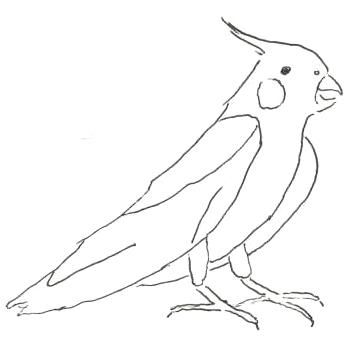
I’m hanging out at Starbucks with some co-workers on our break.
“(Humorous personal anecdote)”
“Ha ha ha he.”
“Mmm Hmm”
“(Complaint)”
“Mmm Hmm.”
“(Blah blah blah).”
“(Humorous personal anecdote).”
“Ha ha hee hee.”
Andrew and I are sitting in his room, watching The Big Lebowski, and drinking dirty martinis that he made. It tastes terrible.
“So my brother’s wife is going to have a baby,” I say.
“Babies are like aliens.”
“Some of them are cute.”
“I remember when my sister was born. She had a certain smell.”
“Like a bad smell?”
“No, just a baby smell.”
Suddenly, Donovan’s dog comes bounding into the room.
“Get the fuck out of here, Robot!” Donovan yells, and throws a book at the dog.
“I thought your dog’s name was Punker.”
“It is, but I’ve started calling him Robot.”
Three girls in a Jetta pull next to me and indicate for me to roll down my window. They are smiling. Then, when I roll down my window, they roll theirs up and laugh and drive off.
I walk downstairs, and Mrs. Lacounte is sitting at the dining room table talking with one of her friends. I’m filling a glass with ice, when Mrs. Lacounte asks,
“Hey honey. What’s the difference between an atheist and an agnostic?”
“Atheists believe that there definitely is no God, and agnostics believe that you can’t know if there’s a God,” I say.
“So, atheists are more absolute?” Mrs. Lacounte asks.
“Yes, and agnostics are more uncertain,” I say.
“Okay, thanks, honey,” Mrs.Lacounte says.
I pour a glass of orange juice.
I hear Seth and Christine’s baby’s heartbeat over the phone, from the ultrasound. It sounds like a helicopter.
Crying alone in a lonely room in someone else’s house. Fuck television. I don’t know what to do to make this loneliness and boredom go away. Even writing doesn’t help tonight.
Tonight I put on a Talking Heads record, “Little Creatures,” and danced alone in my room. It felt good.
A list of frustrations:
1.) Empty light on gas tank, no money to buy gas
2.) I’m at Albertsons buying water, and my debit card is declined
3.) I am forced to drink tap water that tastes like metal
Tonight I was angry so I took a water bottle and threw it into the pillows of my bed, but it bounced up and flew behind the bed and I had to reach really awkwardly to get it, because I was thirsty.
My first night sleeping in my new apartment, I’m laying on the couch, and I hear Landon and Jonnie giggling in the other room, and then I see them both walking out in their briefs, with it pulled up their butts like a thong and they jump on the couch with me and then prance around the living room. I walk out of the bathroom, and Landon, Aaron, and Brendan are standing at the door with their pants around their ankles, and they won’t let me pass, and I think Brendan’s penis touches my leg.
On the morning of my brother’s birthday, I awake, restless and weary. It’s my day off and I can’t sleep in. I need to sleep more. So I walk outside, smoke a cigarette, and watch the sunrise, but it hurts my eyes. I sit at a bookshelf, thinking of Seth, looking for archetypes--Jacob and Esau, Paris and Hector, James and John, Alyosha, Ivan, Dmitri. But I find nothing, except, in the letters of VanGogh:
To Theo
Nuemen, 30 April, 1885.
On your birthday I send you best wishes for good health and serenity.
But he spends the rest of the letter writing only about himself and his painting--“The Potato Eaters.”
I am cold. So I lay back in bed, pull the covers over me, and search for an image.
The posters on my wall--Matisse’s “The Flight of Icarus,” a Talking Heads album cover: David Byrne in briefs, with a globe on his shoulders, and beside him it says, “I can feel the weight of this world.” I close my eyes, scanning memories, photographs. And, at last, find what I seek: I am ten and Seth is twelve and we are at the Grand Canyon. Mom and dad are taking pictures. I am fascinated by the edge of the abyss. I step forward, and Seth extends his hand to hold me back.
I wake up cold and restless. Through the windows I can hear the loud noises of construction from the building across the street. I look over at my roommate, who is fast asleep. I envy the soundness of his sleep. This medicaton makes me restless. I pull the covers tight over my body and close my eyes, but my mind is awake. It’s no use. I can’t go back to sleep. I look at my clock--6:30. I don’t want to get up, but I can’t lay here any longer. I get up, take a cigarette and lighter from my dresser and walk out the back door, onto the rooftop of my building. It’s cold outside and the sun is newly risen. I light my cigarette and sit in a chair that is damp with dew. My head, my head. When will this feeling go away? I close my eyes, inhale smoke, and blow it out into the cold air.
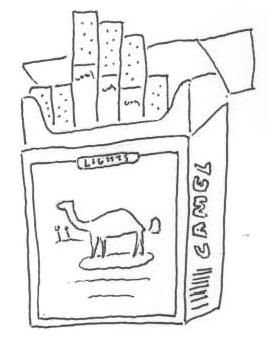
I lay on the black leather couch in my hot apartment, reading Artistotle’s Poetics. I fall asleep and wake up sweaty and light-headed. I need to do something with my life. I need to read, to write. I need to get out of this lonely apartment. I’m hungry. So I make a bowl of soup, watch the Simpsons, smoke a cigarette, pack my bag, get dressed and walk out onto the street.
It’s early evening and there are people eating dinner at Stadium Tavern. I watch myself in the windows of buildings as I walk. I’m losing weight. I pass a woman with a distance in her eyes and she asks me for cigarettes. I give her two. I walk to Starbucks, buy a tall tea and sit outside. Two homeless men are seated at a table and one asks me for change. I give him 85 cents. I sit, reading a Psalm, thinking about suffering. My mind aches--these four and a half years, this distance in my eyes. A young man tries to talk to me and my mind is so cloudy that I answer in short fragments. I don’t know what to say to people. My head is bothering me--the familiar, painful detachment, the depersonalization, the waking death. And so I pray, “Bring me back. Bring me back to life.” I wait for a girl to save me. I am trapped within myself. Still thinking about suffering, I look to my left and written on the wall are the words,
And from the darkness came the light.
I am waiting for the light.
Why can’t I ever write about anything except myself?
All alone in the apartment. No money. No cigarettes. I find myself digging through my drawers and clothes, looking for loose change, like a homeless person or drug addict. My loneliness intensifies my craving for a cigarette. From now on, I will really try to be more careful with my money. Bills this month:
$180--car registration
$160--car insurance
$90--therapy
$250--rent
$120--cell phone
total = $800 ! Fuck!
I’m walking back to my car, almost despairing because of the feeling in my head. I’m thinking about suicide. Then I hear a voice behind me,
“See you later, Jesse.”
I turn and it’s this pretty girl from my class.
“Bye,” I say weakly.
Walking to my car, I cry a little.
Standing at the intersection of State College and Yorba Linda Boulevard, reading Auden: “Something amazing, a boy falling from the sky.” The light changes, the walking man lights up, and, still reading, I step into the crosswalk. A car zooms past one foot in front of me.
“Holy Shit!” I say aloud.
A young man on a bicycle rides by, looks at me, and says, “That was close.”
I walk into my apartment and for some reason there is a rusty razorblade on the coffee table. No, not that thought. It would be so easy. To never feel anything again. Is there such a place as hell? Is this hell? If hell exists, there must also be a heaven.
I walk into my room, look at the map of the United States on my wall, and think, I can go anywhere.
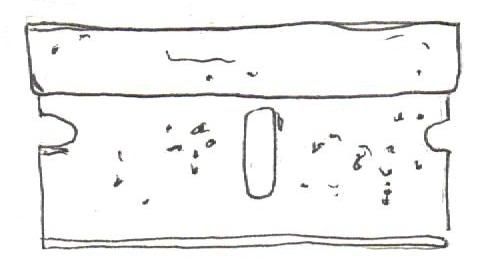
I sit alone in my apartment, nearly trembling with desire. I flip open my cell phone and scroll through the names. Why, why did I delete all those girls’ numbers? I try to remember, in vain, the number of a girl. Lauren, Heather, Maria, anyone. But I can’t remember any of their numbers. I put on my brown blazer, grab my pack of Camel lights, and walk out onto the rooftop of my apartment, which overlooks a street lined with bars. I look down, across the street, at the men and women drinking and talking loudly. I light a cigarette and stand staring at the talking people. Can they see me?
I go alone to a coffee shop because it’s Saturday night and I don’t want to be alone in my apartment. I want to see people and I want to see life, even if it’s only strangers.
At our Halloween party, I’m The Incredible Hulk, and I keep saying to people, “You wouldn’t like me when I’m angry.”
Being alone all day is not good. I don’t know what to do with this free time. I smoke too much. I call this girl Kristina, who I met last night, and leave a message. She doesn’t call back. I try to read The Sound and the Fury and I just can’t get into it. There’s a pretty girl inside Starbucks. Maybe she’ll come outside and talk to me. Probably not. There’s a 50-something man sitting alone, staring at his cell phone, probably waiting for someone to call.
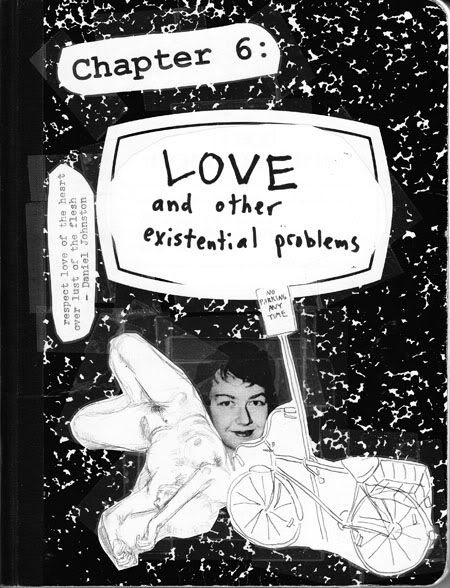
Dear Beatrice,
I don’t know what to do. I feel so restless. I sit on my rooftop and smoke two cigarettes and get a stomach ache. What do I do? I don’t want things to fall apart. Please don’t let them fall apart. I had this vision, this dream for my life. But now that dream has gone, or has changed. But what do I do? How do I proceed? How should I begin and how should I begin? O this life. I wander around my apartment, getting a drink of water, blowing my nose, feeling the countertop, looking at my reflection in a mirror. I am trying to orient myself in the world.
Sincerely,
Jesse
I sign onto myspace and there is a new message from a girl named Esther. It says, “Hi. Hello. How are you?”
I don’t know a girl named Esther, I don’t think. Most of the random messages I get from girls on myspace include a link that says something like, “Check out my sexy pics,” which is a link to a porn site.
I check Esther’s profile, and there are no links to porn sites. Just a picture of a bicycle, and lists of interests, some of which are similar to mine. I click on her pics, and none of them show her face. In one she is holding a strawberry shortcake ice cream bar over her face. In others, she is turned from the camera. She must be a dog. Or a burn victim.
.
“Hi, I’m Esther,” she says.
“Hi, I’m Jesse,” I say. And we shake hands..
I wake up this morning to a pounding sound downstairs. It’s like 3am, and it scares me. Probably some drunk person stumbling home. And then I get thinking about Esther, and I feel this feeling, this unfamiliar feeling—sort of like a weakness in my stomach and chest. A kind of pleasure that is almost painful. Is this love? Or is my ulcerative colitis flaring up again?
We are laying side by side on her bed, watching “Rushmore.” I edge my hand over so that it sort of brushes her hand. Then I grab one finger, and she grabs one of mine, and then we are holding hands. I do the “yawn technique” to put my arm around her. She rolls her eyes and then smiles. I kiss her cheek, then her mouth, and then we are making out.
“I like you,” she says.
“I like you too.”
“Does this mean we are going out?”
I hesitate.
“Yeah, I think.”
“So we are boyfriend and girlfriend?”
“Yeah, definitely.”
We are laying on her bed, watching “The Patriot.” I am sort of caressing her arm, and I feel these little bumps, like scars, on her forearm.
“What are these?” I ask, turning her arm so I can see them. There are all these little lines, like from cuts. She pulls her arm away.
“Nothing,” she says. I feel a heaviness in my chest.
Andrew and I are at a strip club called “California Girls.” We are drinking bottles of Bud Light and watching Sexy Sadie dance. It’s my first time at a strip club, and it feels pretty weird. There’s this middle aged guy with a moustache, sitting alone at a table, watching the show. This girl in lingerie walks up to our table and sits real close to Andrew.
“Hey boys.”
“Hello.”
“I’m Precious,” she says.
“Hello Precious.”
A man’s voice announces over a loudspeaker, “Right now, lap dances are two for the price of one!” Andrew slips Precious a bill, and then she takes my hand, and leads me to a chair in a semi-secluded part of the room. I sit down, and she starts dancing pretty erotically, sort of grinding her crotch and breasts against me. I don’t know if I’m allowed to touch her or kiss her, or even if I want to.
Andrew says that if you are interested in calling a girl, you should masturbate first, and then if, after masturbating, you still feel like calling her, you should. Because it means that you are probably interested in more than just having sex with her. But if, after masturbating, you think, “Wow, that girl isn’t even cool. What was I thinking?” then you shouldn’t call her.
“You have issues,” she says.
“Like what?”
“You need to figure those out for yourself.”
“I’m trying.”
“Are you?”
“You have issues too.”
“I know. But you’re worse off because you don’t understand your issues.”
“It’s funny how you turned out so good, when you’re the one with the messed up family.”
“Thanks.”
“I’m just saying.”
Okay. So. There are these two paradigms: God and no God. In the God paradigm, sex before marriage is bad. In the no God paradigm it’s okay. Could there be a God paradigm in which sex before marriage is okay? Hard for me to imagine. I could keep the God paradigm and the sex before marriage but then there’s all that guilt. I could chuck the God paradigm and keep the sex before marriage, but then there’s all that emptiness and existential shit. It’s a bind, no doubt. If I’m going to go ahead with the sex before marriage, I must be willing to suffer. Either guilt or existential shit. Probably both.
There is a mysteriously large hole in the sheet at the foot of my bed. I ask Landon about it, and he says, “You move your feet like crazy when you sleep.” Why do I do this? Why do I grind my teeth when I sleep?
“Are you sure?”
“I’m pretty sure.”
“Pretty sure?”
“Well I don’t know how it’s supposed to feel. I like you a lot. How do you know you love me?”
“I just know.”
“Well, I guess I’m a more uncertain type of person.”
“I guess so. I hate that.”
“I’m sorry.”
For me, sex is always associated with intense, almost unbearable, guilt.
I’m dancing on the rooftop, pretty wasted. It’s Brendan’s going away party (he’s moving to New York.)
“Take your shirt off, Jesse!” Andrew yells. So I take my shirt off, and dance, but then for some reason I feel really self-conscious.
“I’m embarrassed,” I say, and run inside.
I walk to Table Ten to see if Nikki is there, and she is there, but so is her boyfriend, so I walk home, drink more, throw up, and pass out.
I have a dream where I really miss Esther. But then I wake up and I don’t miss her as much. But then, driving to my parent’s house to do laundry, I miss her again.
“Another round, Kevin!” she says, and puts her hand around my waist, and slides it down toward my butt.
“Take a shot, baby.”
“Oh, I think I’m good.”
She hands me the shot glass.
“Well, okay.”
And then she starts kissing me, and I’m not really that attracted to her, but I’m so drunk and horny and lonely that I kiss back. Right in the middle of this crowded bar. We stumble back to her apartment and she does a line of cocaine. I refuse. I follow her to her room.
At 4am, I awake sneezing and barely able to breathe. Two cats lie snuggled in her bedding. I quietly leave and walk home through dark, deserted streets. It’s Sunday morning and I was going to go to church, but instead I sleep until noon. I go with this girl and her friends to brunch late Sunday morning. They drink mimosas and bloody Marys like water. I take two sips of a bloody Mary and almost puke, so I drink water. After brunch, I go home and collapse in bed. I can hear them across the street at the bar, drinking and laughing. These are people who can literally drink all weekend. As I lay alone in bed, feeling utterly depressed and sick, listening to their drunken revelry, I wonder if I will become one of these people.
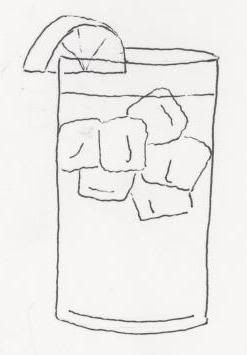
After seven vodka cokes, I stumble home, lay in bed, and send text messages to all the girls in my address book:
To Esther: “Hi.”
To Jenn: “Jenn!”
To Christy: “Watcha doin?”
To Erin: “Hello.”
To Courtney: “I miss you.”
To Laura: “If you are too drunk to drive home, you can crash at my place.”
To Esther: “You are in my novel.”
To Rachel: “Torture me in some other way, my dear fury.”
No one replies.
My friend Ryan once said, “Drunkenness is a lonely apartment.”
I text Christy: “Watcha doin?”
“Watching Sex and the City.”
“Do you wanna have sex in this city, with me?”
“omg”
The road to hell is paved with booty calls.
And in the morning, I feel like shit.
I’m sitting in Mulberry St with this girl I used to date in high school. My first kiss. Back in the days when a kiss was a rare and beautiful thing. This was like nine years ago. So she’s in town for Thanksgiving and we’re having a beer. She looks about the same. I look bigger and fatter.
“So when did you get engaged?”
“Last weekend,” she says.
“I thought you said you were never getting married.”
“Yeah, I thought so. But now I’m engaged.”
“I’m confused about things. I don’t know what the right thing to do is.”
“I don’t know either.”
“I mean, if you’re marrying someone, you should be certain, right? You should know that you want to marry them, right?”
“I think that’s how it’s supposed to go.”
“Maybe it’s just a problem with me. I mean, I’m not certain about anything.”
“Me neither.”
“What is love? Is it a feeling, or is it a choice, or is it both?”
“I think maybe both. But I’m not certain.”
“…”
“…”
“For most of my life, I’ve had this idea that I had to get married to be happy. Lately, I’ve been thinking that that might not be true.”
“…”
“But the idea of being like 50 and single, living alone in some apartment with cats, is kind of depressing.”
“And the idea of being 50 and married, living in some suburban home, leading a boring, ordinary family life, is also kind of depressing.”
“Why don’t we get married and agree to never let our lives get boring?”
And then we are lying on a couch in my storage room, head to toe, talking about sex and depression.
“We only talk about sex and depression.”
“What else is there?”
“When last I saw you, I had no experience with either sex or depression.”
“…”
“…”
“When I was younger, I remember feeling like head over heels for girls I liked. I don’t really feel that way anymore, which is why I don’t think I’ll get married.”
“That could just be the medication you’re taking.”
And now we are laying on my tiny Ikea twin bed, our heads resting on my Star Wars pillow.
“I can’t believe you live like this.”
I massage the knots in her back.
“Push harder. That feels good.”
“That’s what she said.”
I hold her thin body in my arms. I understand her sorrow. She is engaged to a man who no longer excites her. She feels unappreciated and lonely. How different we are from who we were. We have become sad.
“So we should meet again in another ten years.”
“Do you think we’ll be happy?”
“I hope you’re happy.”
I feel her foot against mine. I hold her, sort of cradling her head, and kiss her forehead, and I almost cry.
At Starbucks, I run into this guy Dennis, who I’ve seen around the bars. I’m writing in my journal.
“You a writer?” he asks.
“I’m trying.”
“You should write something about Fullerton. The ugliness and the beauty.”
“Maybe I will.”
You have to look hard for the beauty because there is so much obvious ugliness. But in this world, the beautiful, like the good, is humble, modest. She speaks in whispers. She is shy. But when you find her, even catch a glimpse amidst the loud ugliness, well then that is something.
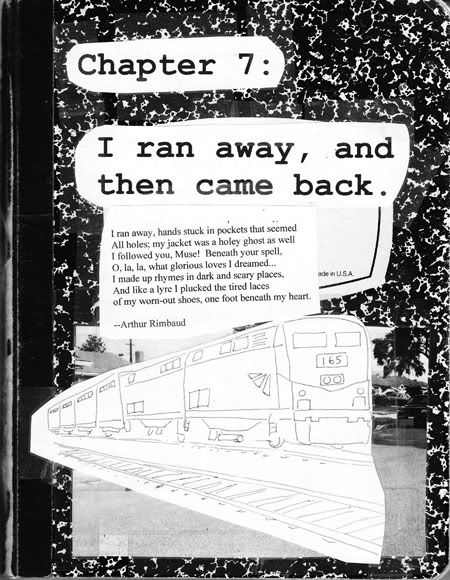
Dear Beatrice,
Fuck it. I will bear it, as I have borne everything else. And from this shitty mess, I will try to make something beautiful. I will get on a train this summer in search of America and an ending for my book. Will I find these things? I don’t know. Into the heart of a wounded country I go, with a notebook and a video camera, to tell of the things I see.
Sincerely,
Jesse
How to describe the California coast? It the south, it's mostly sandy. As you move north, from Santa Barbara to San Luis Obispo and on, it gets more rocky. The beaches become cliffs.
There are a lot of homeless people in downtown San Francisco. This homeless man is standing by a shopping cart shouting various platitudes at the people walking by:
To two women: "Life's a journey, not a destination. Remember that!"
To two men: "God made Adam and Eve, not Adam and Steve! Take your fag shit down the road!"
To a young woman: "Yowsa! Lookin' foxy!"
To the general public: "I'm an American hippie! I don't give a fuck about your money!"
To me when I refuse to give him money: "Fuck you!"
I arrive in Berkeley and the first thing I do is purchase an organic, fresh-squeezed orange juice.
The men playing chess in Union Square. I'm reading a book about Kafka. He suffered from digestive problems and headaches. He felt alienated from himself and those around him.
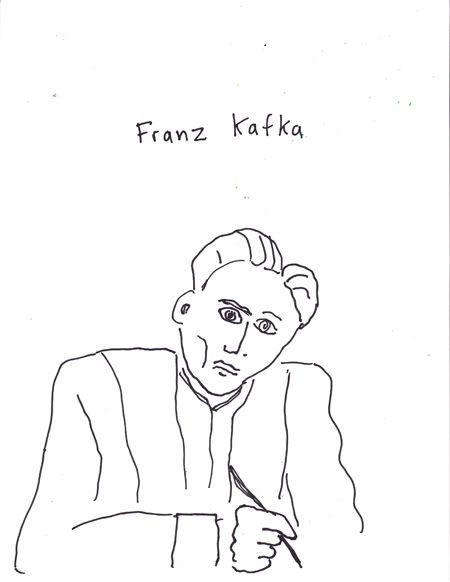
San Francisco’s Chinatown kicks LA’s Chinatown's ass.
In the Ferry building on Embarcadero, rich people sip wine, purchase expensive meats and cheeses from posh shops, and watch the boats. A few blocks away, on Market St., poor black men sell scented body oils for $4 a vial, and homeless men sleep on the steps of the United Nations building.
In the lounge car, a black man wearing a leather jacket and leather pants is singing a capella to three women in a deep, flat voice: "Some say loooove, it is a river..."
Living in Southern California, where virtually everywhere is paved and "developed," I forget that there are places like the Sierras and the Rocky Mountains--vast stretches of untouched, beautiful land--trees, mountains, and rivers.
I imagine there will be some lonely spells on this trip. On a train somewhere in a Nevada desert, I feel a little lonely, drinking a can of Budweiser and eating a microwaved cheeseburger. Riding through the wasteland of Nevada, I am amazed at how the early pioneers made it through this on horse-drawn carriages. I don't think I could make it. And how beautiful California must have looked after this vast white and brown desert.
On the train to Denver, I listen to an audio recording of The Wizard of Oz. Each character claims to lack something they actually have. The scarecrow claims to lack brains, but he's always devising clever ways to get out of tough situations. The tin man claims to lack heart, but he's always protecting small animals. The cowardly lion claims to lack courage, but several times he courageously protects his friends. And Dorothy claims to lack/miss her family, but the friends she meets in Oz are more like a family to her than her aunt and uncle in Kansas, who are cold and unfeeling. It's about how we get so preoccupied with what we think we lack that we don't realize what we have.
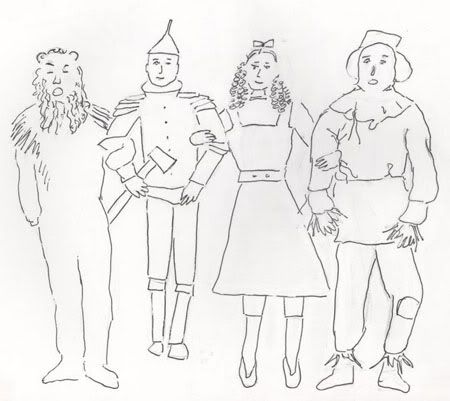
Coming down out of the Rockies, out of miles and miles of mountains into miles and miles of flat prairie as far as I can see. The sky feels bigger here, and I feel smaller.
In the historic Civic Center plaza in Denver, a young Latin couple is writing graffiti on a wall. When they see me, they stop.
"I don't care," I say, and they continue writing.
"They kicked us out of our home," the young man says.
On the fourth of July, I go alone to a pub by Coors Field to watch the fireworks, but there's this huge awning that obstructs my view. I have this text message conversation with Courtney as I get progressively drunker:
"I am the loneliest boy ever to drink a pint of beer."
"..."
"Pick me up and take me somewhere. Anywhere."
"You must be drunk & that is a bad idea. If things were different, id have spent the whole wknd with u."
"Why cant things be different?"
"How?"
"You can leave everything behind and come with me."
"go home. you are going to get too lonely on your trip."
"I can handle loneliness."
And in the midst of my loneliness, this happens:
I wander back to my hostel and my four roommates are drinking beer and laughing--a black man from Hawaii who is clearly high, a Mexican from Hollywood, a Mexican from New Mexico, and a young Japanese man. They offer me a beer and soon I am joining in the laughter.
We leave the hostel and wander downtown together--a motley crew. The black guy is talking to literally every girl we pass, and it is really funny. I want to take notes.
We wander into this bar called Croc's, where there are girls standing on the bar with dollar bills stuffed under garter belts. I feel self-conscious so I hang out with the black dude, who keeps introducting me to girls as his friend from Belgium. I wave and say nothing because I don't know what to say.
Outside on the patio, I get talking to this girl named Katie who is actually an English major and makes her own clothes and is actually is very cool and cute, like this is the one person I am supposed to talk to. So we talk and drink and I end up going home with her even though I have to catch a 5:40am train to Chicago.
She lives alone in this old loft downtown. We make out and crash into her keyboard because we are both a little drunk, and I decide to miss my train. As we're making out, I notice she has dirt under her fingernails and because I also have dirt under my nails, this brings me great comfort. since I'm always self-conscious about my dirty fingernails. Amy always commented on them, for example.
"I like how you have dirt under your fingernails, because I also have dirt under mine," I say.
"That may be the sweetest thing anyone's ever said to me," she says.
A very long and very strange bus ride from Denver to Chicago. The smells of a 24-hour bus ride--body odor, farts, strange human smells. Sleep-deprived, having not taken Paxil for three days, stuck in a seat for 24 hours, thinking about Katie from Denver mostly. I drift in and out of sleep and the night is a strange amalgam of dreams and waking. Once I think I see a train heading right for our bus, but I blink and realize I am dreaming. In my sleepy/lonely stupor I fear I am going crazy, seeing things, hearing things. But it is just the strange mixture of sleep and waking that accompanies a very long bus ride. I will be happy to reach Chicago.
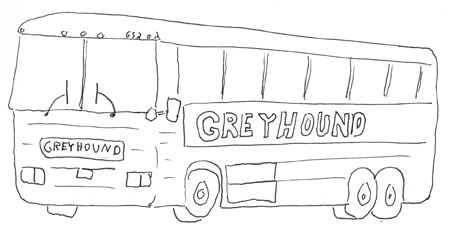
The midwest is mostly vast expanses of flat farmland occasionally interrupted by similar-looking small towns. Farms with their phallic grain silos dot the landscape.
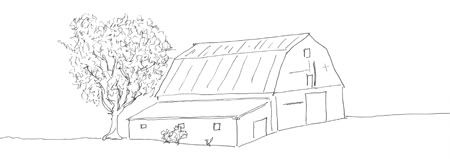
I wanna write this before I get to drunk. I’m writing on a bar napkin. At the Green Mill, a jazz club that used to be a speakeasy in the 30s where Al Capone used to hang, and possibly where my great grandfather used to hang out (He would leave his family for a week and go on bender trips to Chicago, a fact which both saddens and excites me). I think of my great grandfather Ted Morey being here in the 1930s during the Great Depression—the music, the times, the depression, contrasting with the vitality of the music—I get the chills. A blind man plays the Hammond Organ, a fat man plays the drums.
Behind the bar is a circle stage where stands an old organ. Atop the organ is a shrine to Al Capone—a black and white photo, a candle, a tattered American flag, some empty booze bottles. On the walls are these really old painting of pastoral scene surrounded by ornate frames. I image Ted Morey looking at these same paintings. I wish I knew him.
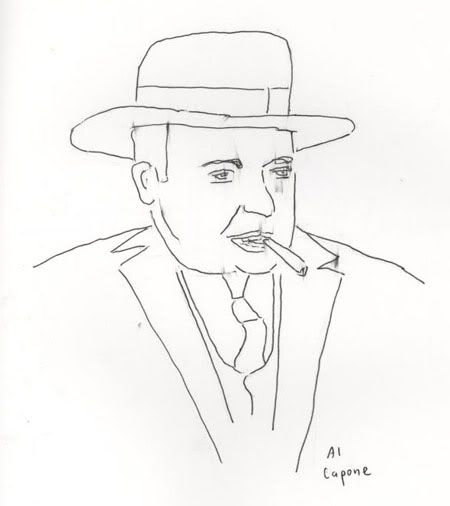
Oak Park, Illinois—birthplace of Frank Lloyd Wright and Ernest Hemingway. Wright wanted to “break the box” of Victorian architecture that was everywhere in America at the beginning of the 20th century. He invented the “prairie style”—open rooms, low roofs, wide windows, rooms within rooms. Some of his houses have trees intentionally growing through them. Walking down Forest Avenue, you can see some of the houses he designed, breaking the monotony of the Victorian homes. Hemingway did the same for the American novel—breaking the box of flowery Victorian style—inventing a simple, direct American style. On the tour of Hemingway’s birthplace, I learn that seven Hemingways have killed themselves. I guess it was depression.
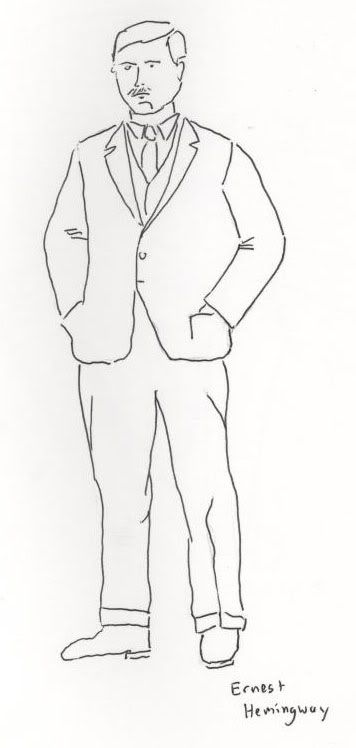
Sun Studios. Memphis, Tennessee. Sam Philips discovered Howlin Wolf, Johnny Cash, Elvis Presley, Carl Perkins, etc. He was a god. U2 recorded “When Love Comes to Town” with B.B. King at Sun Studio in 1987.
At the Rock and Soul Museum, I watch a short documentary about the Memphis music scene, and how record companies like Stax were integrated at a time when that was very rare. Isaac Hayes says, with tears in his eyes, “People said it can’t work—whites and blacks can’t make music together…One of biggest lies ever told.” I learn about a film called “Wattstax” put on by Stax records in Watts, CA in the late 60s. It was sort of like the black Woodstock. I wander the museum with my notebook in hand, writing down names of blues, folk, country, and rock artists I want to check out.
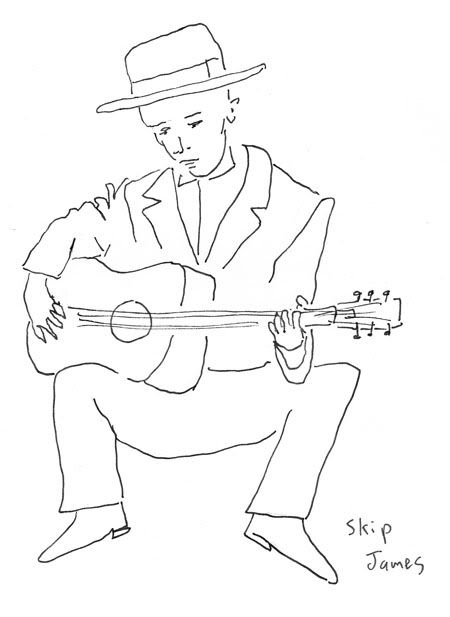
Beale Street, downtown Memphis. A strip of old blues clubs and barbeque joints. B.B. King is from here. It is unlike anywhere I’ve ever been. I want to linger here longer, listen to blues and eat barbeque, but my train leaves tomorrow, and I am exhausted. I shall return.
On the bus back to Graceland, I meet a young sociologist from Norway. He’s traveling on trains like I am. He tells me he visited Washington D.C. and calls it “a fake city, a dead city. The monuments are guarded by men with guns, and outside is poverty and crime.” He also comments on how Graceland is right next to a ghetto, which I also noticed. I say, “A lot of American cities are like that—separated by color, unofficially of course. He tells me he saw Tom Waits in Birmingham. I tell him I’m jealous.
In Greenwood, Mississippi, there’s a junkyard of old cars about a mile wide.
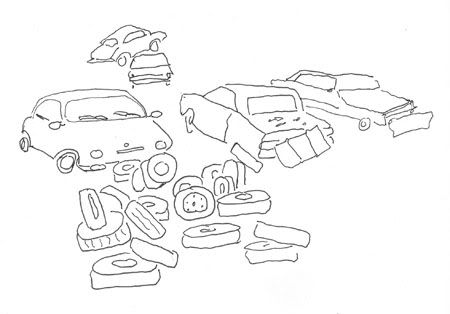
In the dining car, I get talking to the Rails ‘N Trails guides—and old white man and an old black man, both from New Orleans.
“What are those trees that grow out of the swamp?” I ask
“Those’r Cyprus trees. They use those to build houses in N’awlins, cus the wood is so strong and resistant to water.”
The black man tells me his house was flooded eight feet during Hurricane Katrina. He had to leave his house for two months. The white man remains quiet. I guess his house was okay.
Mississippi—swamps, small dilapidated towns, a blue watertower that says Lambert, fields of crops (tobacco?), trees so dense and gothic, growing out of water.
The French Quarter—wrought-iron railings, Larry Flynt’s Hustler Club (girls in bikinis outside beckoning us to come in), Barely Legal, 3 for 1 Drinks!, frat and sorority people getting shit-faced, old 18th century architecture, Voodoo shops, drag queens. Giles and I go into this old weapons shop.
“We should get rifles with bayonets,” I offer.
“Might be a bit tricky getting it through customs,” he says.
Drinking literally all day. The old locals have this haggard, bleary-eyed look—too much alcohol, too much humidity.
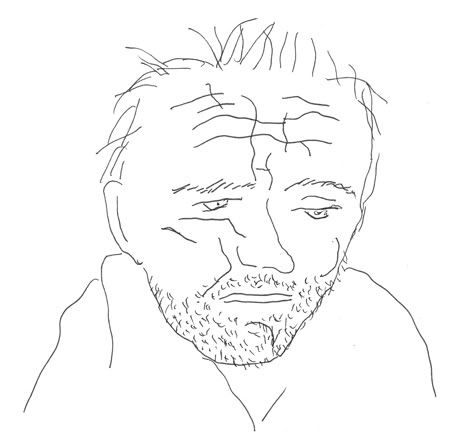
By a sleeping cat, I sit and read Rimbaud on a summer night in New Orleans. Nursing a stomach full of booze and jambalaya, eyes full of the French Quarter, the drunken debauchery of Bourbon Street. I wandered these old streets all day and night, these buildings haunted by too much history and culture and suffering and rebirth, I saw the fortune tellers and tourists and poor blacks and rich white frat boys and college girls, I see something complexly human in this wounded city, in the cast-iron railings, in the “Big Ass Beers” in plastic cups, in the muggy heat that clings to your skin and saturates your clothes, in the tombs that lie above ground, in the ghosts of plantation owners and slaves and General Beauregard and General Jackson. I see suffering and heaviness, yes. But I also see something beautiful. And now Mazzy Star sings sadly from an old radio and blends with the sounds of a TV show and a lone black man occasionally laughing. And me, alone, sitting by a sleeping cat and writing, a stomach full of booze and jambalaya and a heart full of something I struggle to name.
I’ve noticed that graffiti exists pretty much everywhere in the US, from Los Angeles to Chicago, to Bessemer, Alabama. The somewhat disappointing thing is that it looks about the same no matter where you go. It loses some of its uniqueness and shock value when it looks pretty much like every other graffiti I’ve seen. I wonder when graffiti artists will break the box of traditional graffiti.
I’m sitting in Kelly Ingram park in Birmingham, where in 1963 police released dogs and fire hoses on black children who were protesting for civil rights. There’s a stone walkway around the park, with several sculptures—praying ministers, fire hoses aimed at children, snarling dogs and two children standing with a plaque that reads, “I ain’t afraid of your jails.” Across the path is an upside-down jail cell with the inscription, “Segregation is a sin.” This old black man walks up and introduces himself as Juan. I shake his hand. It turns out he was here in ’63 when all this shit went down, or so he claims.
“You know why that jail is upside down?”
“Why?”
“Cus we turned the jails upside down.”
Juan guides me on a tour of the park, explaining various key players in the Birmingham civil rights movement.
“You see that circle in the center of the park that reads ‘Revolution and Reconciliation’?”
“Yeah.”
“That’s where Dr. King stood.”
We’re sitting down and I’m listening to this man tell his stories. The Civil Rights Institute is closed today, but this is better than any audio tour or museum.
I notice track marks on Juan’s arms, from needles.
After the tour, I shake his hand again.
“Thanks a lot, man.”
“Say, could you spare some money for my lunch?”
I give him $12.
At the other entrance to the park is a statue of Dr. King, and across the street is the Sixteenth St. Baptist Church, which was bombed in the 60s, killing four little black girls. The four-part fountain in the center of the park and the four pillars represent these girls.
“The fountain represents eternal tears,” Juan told me.
I sit on a bench writing and another old black man with a cane walks slowly by. We wave at each other and say hello and I almost want to cry. I am the only white person at Kelly Ingram park today.
Flipping through the channels in my hotel room in Birmingham, I find this story on the local news: Three paramedic trainees at a local hospital were fired for taking part in some kind of initiation ritual that involved dressing up like KKK members and holding a wooden cross. On a religious station, Texas mega-pastor Joel Osteen is giving a sermon that begins like this: “Morning, folks. I like to begin my sermons with a joke. So…in heaven God asked the men to form two lines—one line of the men who took their rightful place as head of the household, and another line of men who let the women take charge. Only one man stood in the first line (which I gather is the “right” line), and God said, ‘Well done. You obeyed me by being the head of your household.’ And the guy said, ‘My wife told me to stand here.’” Great laughter. Hahahahahahaha. I guess racism and sexism are alive and well in America.
I’m sitting in the center of Kelly Ingram Park, enjoying an iced mocha before I check out the Civil Rights Institute. Four police officers (three white, one black, trailing a little behind the others) approach me.
“Morning. What you doin’ here today?” one of them asks.
“I was just about to check out the Civil Rights Institute.”
“What you got in that bag?”
“Camera, dirty clothes, some books.”
“Mind if I take a look?”
“Not at all.”
He opens my bag and rifles through my stuff.
“Can I see some ID?”
I hand him my license.
“What you doin’ outside California?”
“Just wanted to see the rest of the country.”
“Mmmhmm.”
“Am I in trouble? I swear I just came to see the civil rights stuff.”
“I need you to stand up and lock your fingers behind your head.”
I comply, and he searches me.
“It’s ironic that you came to see the civil rights stuff, and now your civil rights are being violated.”
“Haha,” I laugh uncomfortably.
“Is this one of them video ipods?” the man frisking me asks, pulling my ipod out of my pocket.
“Yeah.”
“Thanks for your cooperation,” the big one says, and they all walk away.
Thus, my only confrontation with police was in Kelly Ingram Park in Birmingham, Alabama.
In a room in the Civil Right’s Institute, there are large images of black and white people on panes of glass. Someone, fairly recently, has scratched away the neck area of an image of a black woman, so that it looks like a rope burn. In another room is a black and white photograph of two young black men hanging in a public square, surrounded by a mob of white people. One man is pointing proudly. A young woman is smiling. Another display gives real sample questions on a “poll quiz” given to blacks before they could vote:
1.) How many grains of sand in a seashell?
2.) How many bubbles in a bar of soap?
I see a short film on the “Freedom Riders”—a group of blacks and whites who rode a Greyhound bus from Washington D.C. to New Orleans, to make a statement about integration. They were mobbed, beaten, and firebombed. It almost makes me cry.
Trying to get to the White House, I go the wrong way on Pennsylvania Avenue and end up in a poor black neighborhood. It seems strange to me that the president would live in a place like this. And when I get to 1600 Pennsylvania Avenue, it’s a McDonalds.
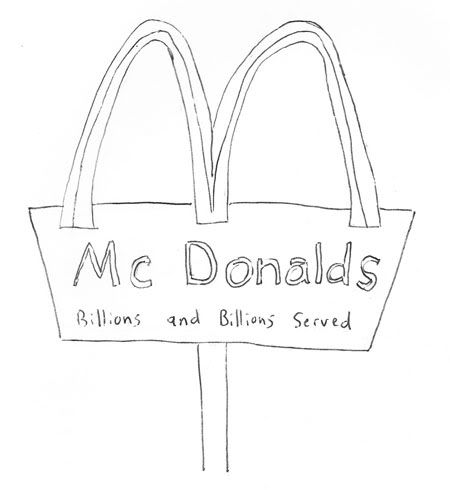
Washington D.C.—unreal city—giant monuments of marble and stone in Greek Neo-Classical style, expensive hotels, it’s all very clean and lifeless unless you wander from the city center to the poor neighborhoods which surround it. Outside the White House, I notice two black limousines pull onto the driveway. Through the windows I can see two Middle-Eastern looking men. I wonder what the president is up to. I bet the average American, myself included, doesn’t know half the shit our president does. Outside Union Station is a massive monument to Christopher Columbus. No mention is made of the indigenous peoples he enslaved and killed. Nar the White House is a massive monument of General William Tecumseh Sherman, the Civil War “hero.” He was known as the “meatgrinder” because he was willing to sacrifice enormous numbers of his own troops to win battles. Also, he would burn the southern cities he conquered. At the Washington Monument, no mention is made of the slaves General Washington owned. These are our heros. Wandering this unreal city (hot and sweaty and thirsty and tired, toting a large backpack) I feel perturbed.
Arlington Cemetery—acres and acres of graves, young men killed in America’s wars.
I go to the Philadelphia Museum of Art not to look at the art, but to run up the front steps, like Rocky. I pass up the Rodin Museum and instead decide to see the statue of Rocky. There is no inscription except for “Rocky” on his shorts.
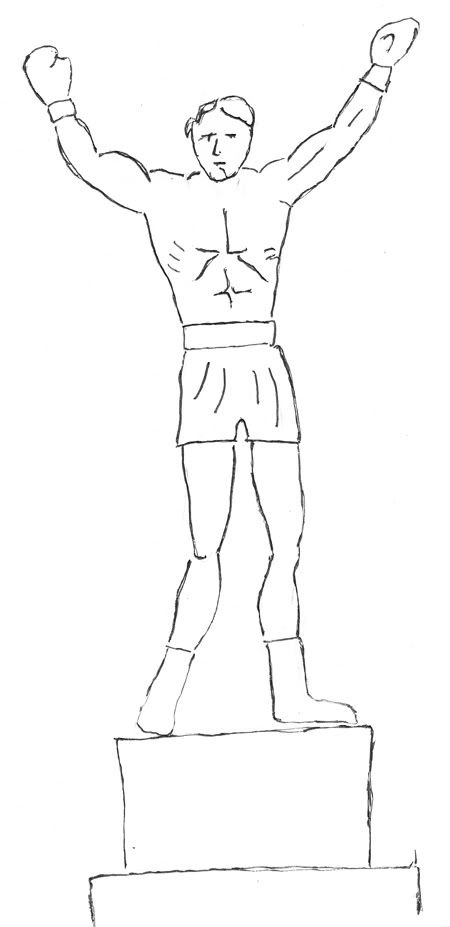
I see the Liberty Bell, Independence Hall, The Articles of Confederation, and the Constitution. I don’t know what I’m supposed to feel as I look at these things. I don’t really feel much. I don’t really think much except that now I can say I’ve seen these things. Is that a good reason to see something—just to say that you’ve seen it? I dunno.
Like the Gideons leave Bibles in hotel rooms, I leave my copy of Don Quixote in the bedside drawer of my hotel room in Philadelphia.
On a train from Philadelphia to New York, cramped in a four-seat alcove with an elderly black couple and some Euro kid, reading Rimbaud. The light through the windows plays on the pages of my book—orange, yellow, and shadows. It is a singularly pleasant experience and I feel the full weight (or lightness) of what I am doing. I am traveling..
I get a ticket for one of those double decker city tour buses, and cruise Manhattan. I go to the top of the Empire State Building. I probably wait in four different lines for like two hours to get up there. Also, it costs $19. How different this is, I think from Sleepless in Seattle. In that movie, Tom Hanks and Meg Ryan got zipped right to the top (for free) by an old elevator man. The reality is much different. I t would be funny if Sleepless in Seattle depicted this reality. Tom Hanks has to pay $19 and wait in long lines with a bunch of tourists. I take the ferry to Liberty Island (more long lines)—but it is actually pretty impressive. I go to Ellis Island and watch this short film on immigration. Behind me in the movie, one little boy says to another little boy:
“Christian, this is not a movie like Star Wars or Kung Fu Panda or Wall-E. This is a movie about real people who came here and lived here and died here.”
Maybe it’s because I’ve skipped my Paxil the past couple days, but as I wander Ellis Island, I keep getting choked up, like I’m about to cry.
Coney Island is totally amazing! A somewhat run-down amusement park with a ferris wheel (Wonder Wheel), a roller coaster (Cyclone), lots of old-fashioned carnival games, and of course Nathan’s hot dogs, home of the annual hot dog eating contest. I wander around filming everything—this decayed piece of Americana. My travel book tells me it used to be an upscale, exclusive amusement park, but that all changed when the subway lines opened it up to everyone.
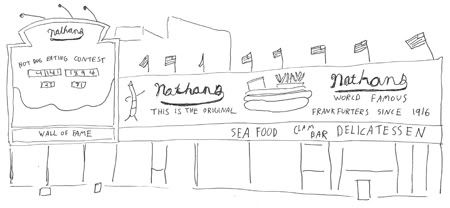
I wander Fifth Avenue past the designer stores—Louis Vuitton, Saks Fifth Avenue, etc. I make my way to St. Patricks cathedral, which looks like something out of medieval Europe—gothic spires, high stained glass windows, ornate masonry. It reminds me of Chartres cathedral in France. Above the arched doors is a bas-relief sculpture of Christ.
Directly across the street is the Rockefeller Center, with the large sculpture of Atlas holding the world on his shoulders, and it strikes me how these two landmarks different American worldviews. There is Christ and His call to humility and selflessness and surrender. And there is Atlas/Rockefeller—the capitalist icon, holding the world, the captain of industry. Christ and Atlas—two icons of the American character.
In Boston, walking the “Freedom Trail.” Outside the Massachusetts State House, protestors hold signs condemning the abolition of bilingual voting ballots. Sam Adams, Paul Revere and others are buried behind Park St. King’s Chapel, once an Anglical church, became the first Unitarian church in America in 1785. The pews are boxed. You used to be able to rent a nice pew if you were wealthy, like box seats for a sporting event.
The first public school in America is now a Ruth and Chris’s Steak House. The Old Corner Bookstore, one of the oldest publishing houses in America, is now a jewelery store called Ultra Diamonds. I go pee on the battle site of Bunker Hill.
A man dressed as a cowboy standing under and American flag, eating McDonalds, in a Greyhound bus station. This is America.
On the bus, a man removes the top of a can of Campbells “Fully Loaded” Chunky beef soup, folds the top, and uses it like a spoon, or a shovel, to eat the cold soup. A crying infant climbs and paws at the rounded stomachs of its overweight parents, as if to ask, “Why was I born into this?” The woman reaches her fat hand into a Pringles can, but her hand is too fat to reach the remaining Pringles, so she has to dump them into her mouth.

Now the overweight woman is eating a plastic pouch of cold pasta that is meant to be microwaved, and sharing it with her infant son. The man is into another can of Campbells “Fully Loaded” Chunky beef soup. These people are constantly eating. And they feed their infant son all the junk food they eat—Pringles, Coke, candy, etc. Whenever the infant of the overweight couple cries (which it does, very loudly, every hour or so) the way they get it to stop crying is by feeding it junk food—Hostess Donettes, Pringles, Coke. This technique works well—the child appears comforted and calmed by the mere appearance of the junk foods. This, I think, is how obesity begins.
Outside Chicago, we pass a middle-aged man in a white Corvette with this vanity plate: IM IAN.
In the train station, two old women pass the time by doing needlepoint designs.
“Well, we’re in Raton, New Mexico,” one of them says, “Was this on your bucket list?”
When you ride the train through the industrial outskirts of larger cities like, for example, Albuquerque, you see the backs of business buildings, you see what advertisers and marketing departments don’t want you to see—the unvarnished face of commerce—square, graffiti-covered buildings, acres of piles of products—stacks of refrigerators, pickup truck shells, machines and appliances whose function I cannot determine—piles of metal and plastic.
5:15am. Somewhere near Barstow, California. Thoughts on returning home, and on my train trip in general. On a literally surface level, I now know what a lot of our country actually looks like, which is good. But on a deeper level, I think I’m less afraid now. I made it on my own for a month all over the country, in strange cities and places. I’m not afraid of traveling alone, or just setting out on strange adventures. I want more adventures. I want to explore the whole world. Also, I think I’m less afraid of people. When you’re traveling alone, you have to talk to and meet new people. Most people I met were decent and interesting people. I’ll never forget Giles from Wales, Peggy from San Francisco, Katie from Denver, Frank in the Café car, the girl in New York who I danced with and then dry heaved, the police officers in Birmingham who searched me for drugs on the same spot where police turned dogs and fire hoses on black children in the early 1960s, Mike the jazz drummer who I met at a former speakeasy in Chicago called The Green Mill, the Swedish guy I talked to on a bus in Memphis who called Washington D.C. a “dead city”, and the Jewish father and son from Long Island who I got drunk with on bourbon on the train ride home…
I’ve never felt so comforted, relieved, and excited to see the suburbs of Southern California—Riverside, Irvine, Santa Ana, Orange, and finally Fullerton. I am home.
